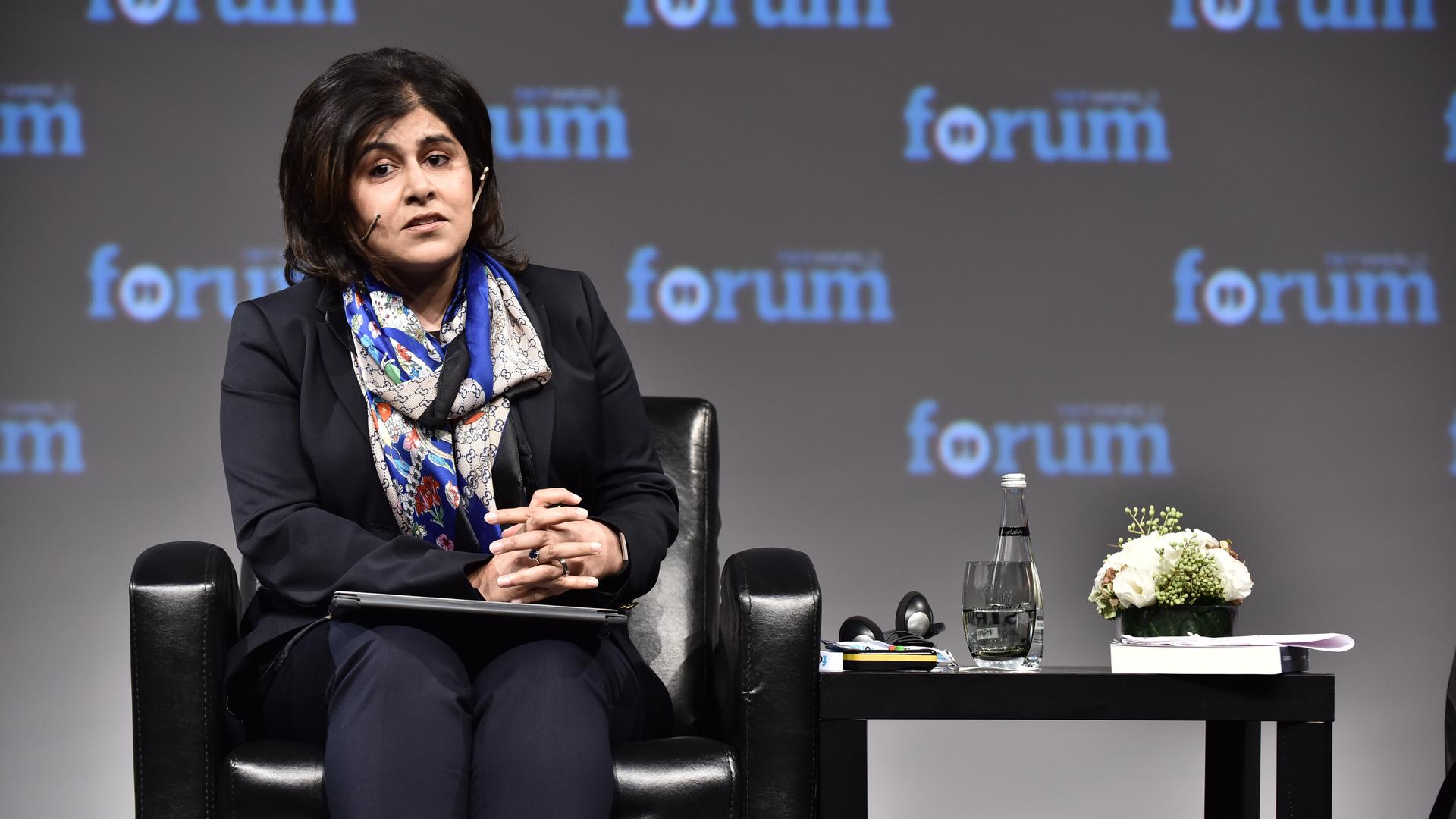Istanbul, Turkey – Some powerful Britons in the media and politics are intent on “ratcheting up the hate” with a clear agenda to promote “an axis” of hatred, Britain’s Baroness Sayeeda Warsi said on Thursday.
She was speaking at a panel on xenophobia and Islamophobia at The Forum conference in Istanbul on Thursday, adding but “I don’t think that the United Kingdom is Islamophobic.”
“I don’t think the government is Islamophobic. Are there politicians who are Islamophobic? Yes there are. But Britain is far better than the rest of Europe and America at tackling the issue,” said the Conservative peer, who was also Britain’s first Muslim member to join the cabinet.
“The kind of elected respectable fascism you see in Europe” isn’t present in the UK, she argued. “In Britain, we don’t have members of the far-right sitting in our parliament.”
She also called for Britain’s counter-terrorism policy, part of which known as Prevent, to be revisited.
“One strand of the counter-terrorism policy, Prevent, is to make them feel like belong. We should focus on ‘Promote’ rather than ‘Prevent,'” she told the two-day conference, organised by Turkey’s public broadcaster TRT World, at the Conrad Istanbul Bosphorus Hotel in Istanbul, Turkey.
Over 400 guests, including scholars, politicians, journalists, NGO representatives, and other members of civil society attended the inaugural forum on October18-19.
In Britain, we don’t have members of the far-right sitting in our parliament
Skewed media coverage of Muslims
Warsi said, “In the UK, we have lots of issues related to child abuse, and we’ve made it about Muslims when actually we’ve had child abuse in Catholic communities.”
“Religious identity has nothing to do with national identity. We’ve had [the Harvey Weinstein sexual abuse scandal] and we’ve not asked if his religion inspired him to be a pervert,” the 45-year-old Yorkshire woman said.
“The media has a responsibility to report the facts and not sensationalise the issues. We reached the point where editors were saying ‘go out and find a bad Muslim story.’ We’ve got to get to a point where we get to start good Muslim stories,” she said.
The peer’s comments come on the back of reports of rising Islamophobia attacks across the EU.
A study presented Wednesday at the House of Commons led by Dr Imran Awan, associate professor of criminology at Birmingham City University and Dr Irene Zempi, lecturer in criminology at Trent University showed that Islamophobia is on the rise in the UK.
The peer was slated as ‘the enemy within’
Warsi launched a biography earlier this year.
“I called the book “The Enemy Within” because it was something I was called while serving in government,” she said.
“In 2013, a young soldier was killed by terrorists. Shortly after that we set up a task force to look at things differently. I used to sit on the [UK’s] national security council.
“A right-wing commentator said: ‘How can we deal with terrorism when we have the enemy at the table?’
“What that comment said was that even though my grandfathers – maternal and paternal – had served in the British army, even though I was serving my country at the top table as a privy councillor; what that statement said was: You do not belong. ‘We do not trust you, and therefore you are the enemy within’.”
“For someone who had grown up with racism in the 1970s, who took it for granted that my father would get beaten up for the colour of his skin — I thought I had thick skin,” Warsi said.
“But actually that insult really hurt.
“Because it meant that there was no place for me in the society in the place I considered home,” the former Chair of the Conservative party said.
Warsi has condemned former British premier David Cameron for demonising Muslims in the past.
“Even after centuries, there’s still a tension about who belongs or who matters and do not matter,” she said.
I called my book ‘The Enemy Within’ because it was something I was called while serving in government
Challenging EU Judeo-Christian narrative
“What I find most disturbing about the current discourse,” the peer said “is that we have started to develop a narrative of what is known as the Judeo-Christian European narrative.”
“Unless someone can convince me that Jesus was born in Germany and Moses in New York… I feel there is no conflict between having a European identity and a Muslim identity. Turkey is a perfect example of that,” the Baroness said.
“If you go back to 7th century British, Islam was within 250 miles of Dover. These communities have always had an interface.”
European identities under threat
“My Islamic identity is about me — not about you. It’s a rule book for me — not a stick with which to beat you. Having a strong religious identity is a positive thing. Europe needs to be more Christian and secure in itself because it doesn’t feel Christian enough,” Warsi said.
“Is there a pan-Islam movement where Muslims have an affiliation to everyone else? Of course they do. Doesn’t anyone else? I can happily meet other Brits and have an association with that identity. Isn’t Israel built on the fact that there is pan-Judaism?”
“Isn’t there a religious identity across the world with other communities? Why is that a negative thing?” she asked.










Discussion about this post